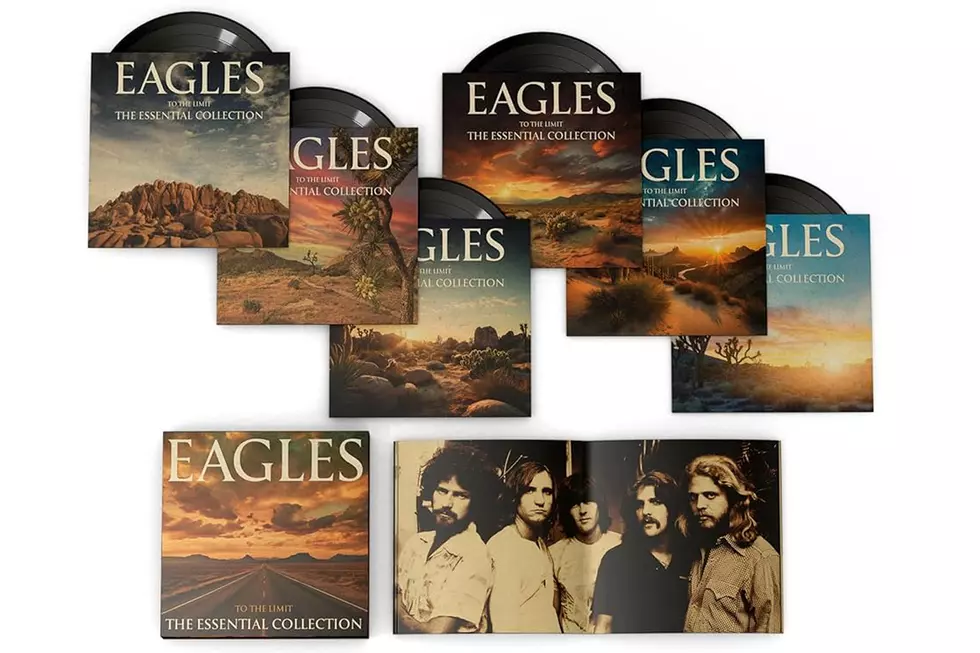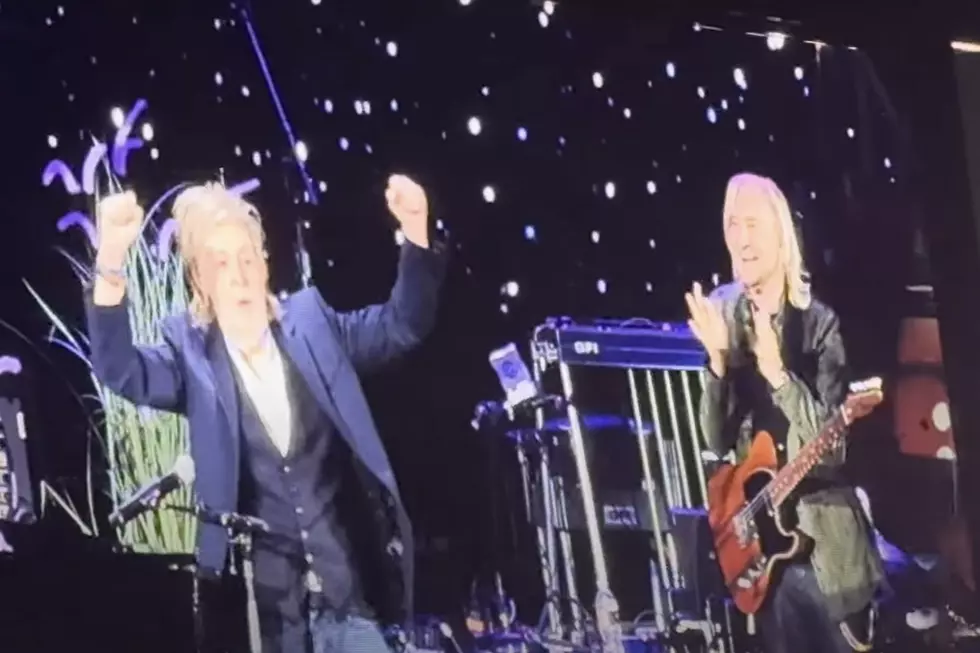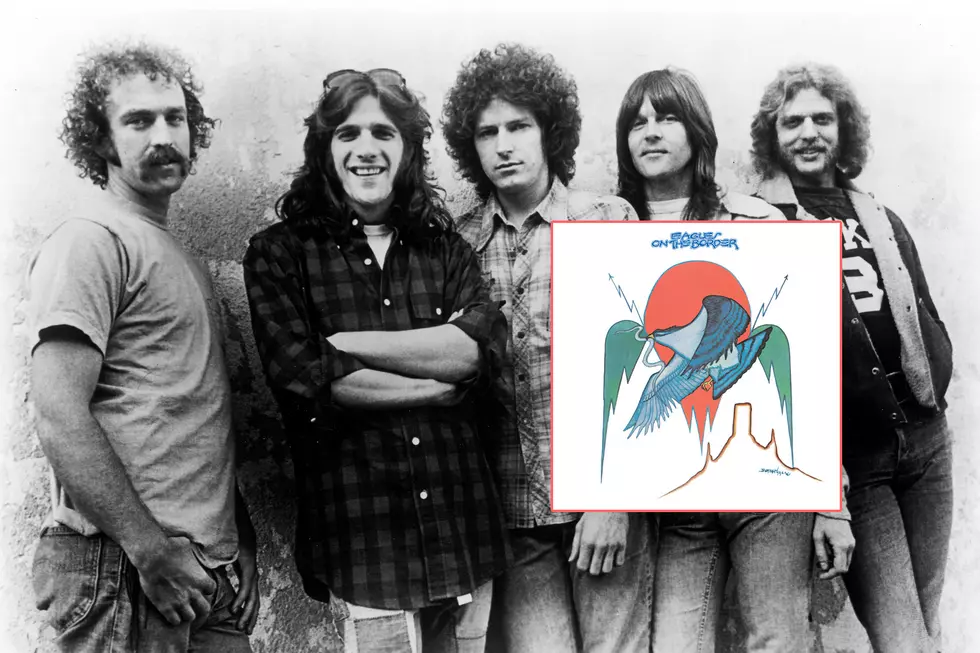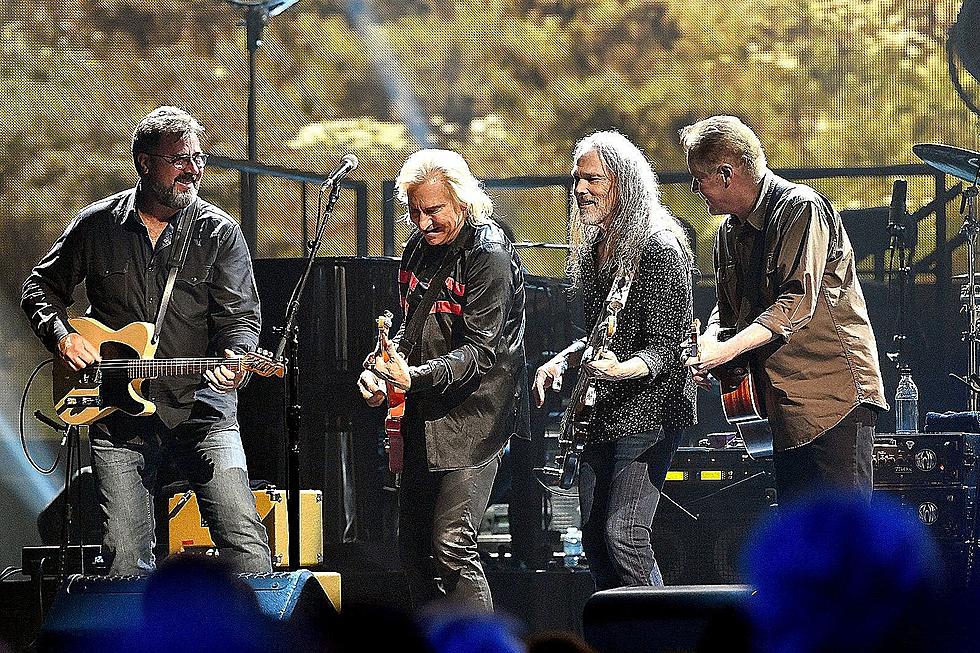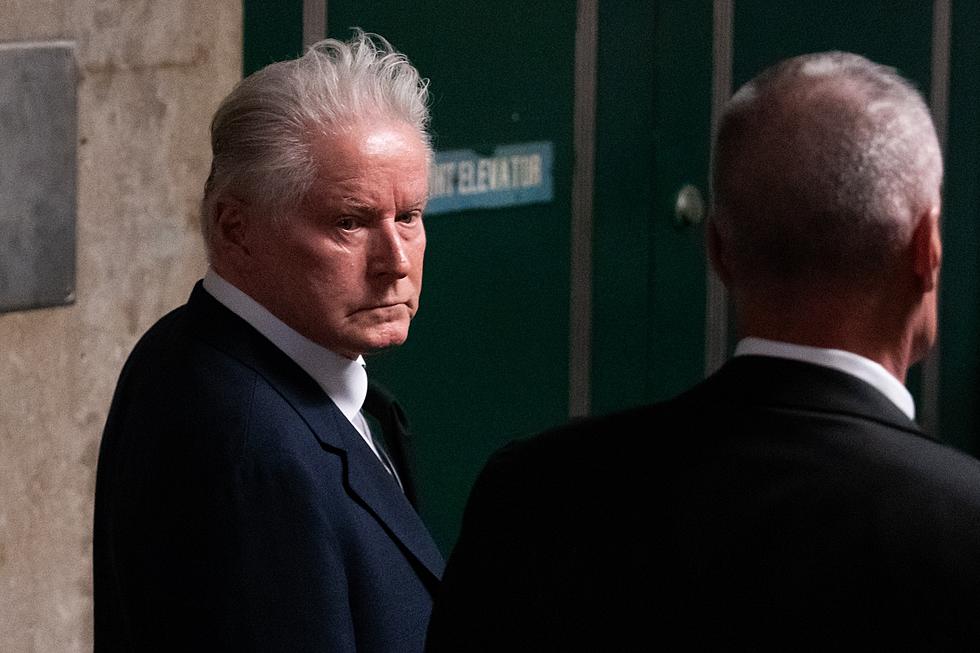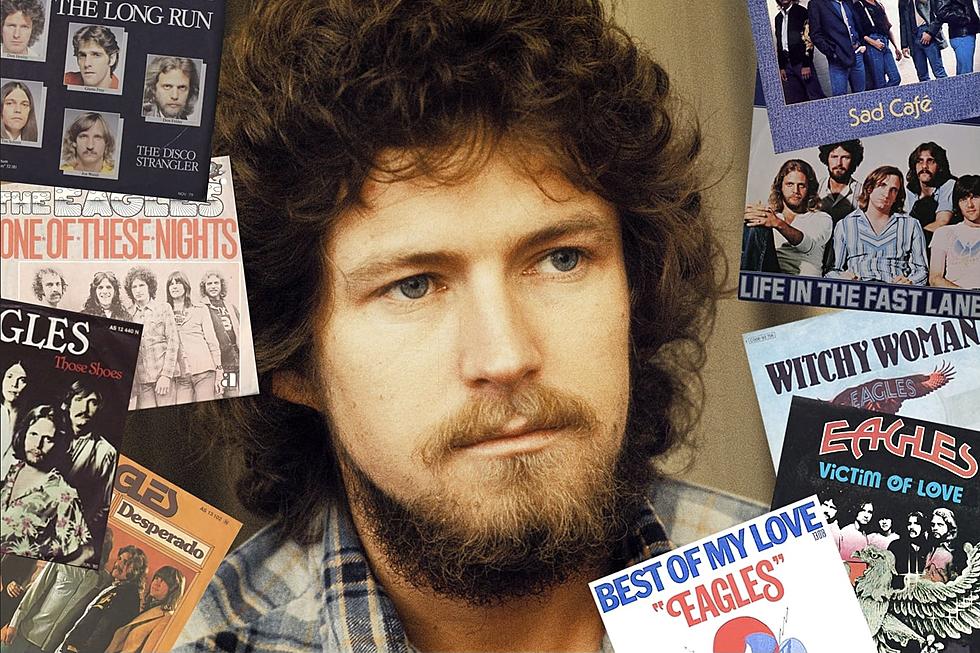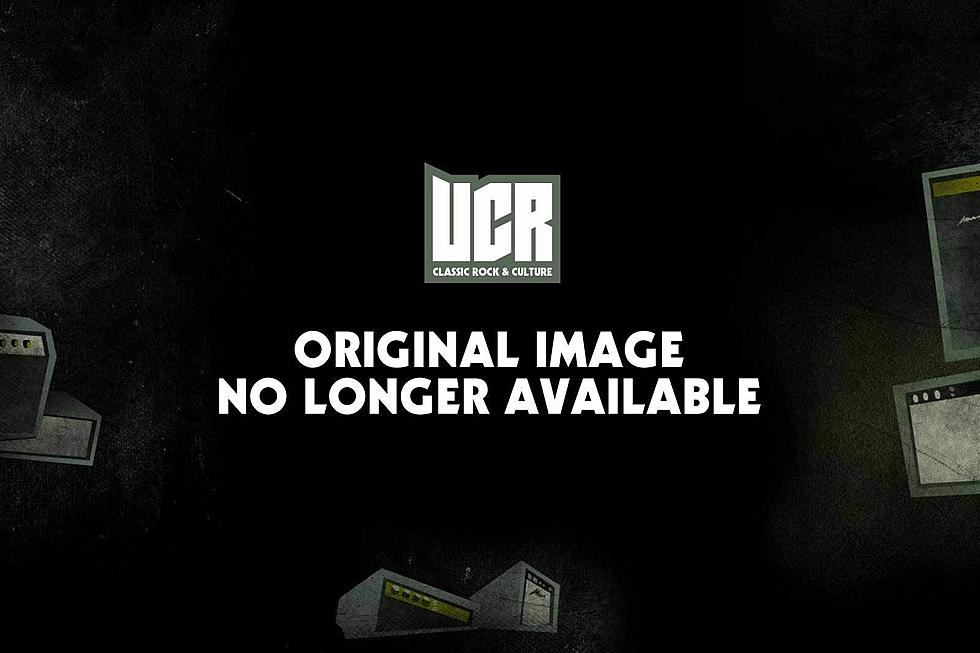
Joe Walsh Talks About ‘Analog Man’
With 20 years gone by since his last solo release, 'Analog Man,' the new solo album from Joe Walsh is a long overdue and very welcome surprise. Sure, we’ve known for almost a year that Walsh had plans brewing to put something out sometime soon, but in recent years, he’s been pretty wrapped up with his regular day job with that band called the Eagles, so a solo release didn't seem incredibly likely.
Although two decades have passed and many musical trends have come and gone, ‘Analog Man’ reveals quite delightfully that Walsh hasn’t lost a step. He sticks fairly close to the tried and true rock and roll playbook of what he’s best known for, but at the same time, with Jeff Lynne helping to guide the ship, there are some different nuances present as well. All in all, ‘Analog Man’ fits quite well alongside the discography of your favorite classic Joe Walsh albums.
We recently got a bit of time to talk about both the past and present times with Walsh and it was a nice follow-up to our initial ‘Analog’ conversation last summer.
Good afternoon, Joe!
What were you listening to before I arrived?
It was ‘Things We Said Today’ by the Beatles.
Oh really! Yesterday was Frank Sinatra day!
Not a bad song to listen to while you’re on hold.
No, that’s good!
I love the diversity on this new album. To use an example, midway through the title track, there’s a keyboard swell that has a real prog rock element to it, followed by what I would consider to be that trademark Joe Walsh slide guitar sound. You really captured a wide range of sounds, both old and new, on this record.
Yeah, you know, Jeff Lynne has a lot to do with that. Jeff Lynne produced most of the album and it’s the first time he and I worked together. He said, "Oh, please please please, give me the middle part!"[Laughs] So I said, "Okay, man. It needs some guitar when you’re done!" So we did that middle part, but yeah, that’s a little ELO in there!
It was great, because it came out of nowhere.
Yeah, Jeff was great and we’re kind of new friends. At one point, we had show and tell day and he said, "Well, why don’t you bring your tracks over to my house and we’ll have a look at them?" That gradually led to him participating more and more. He has such a great gift of seeing the finished thing and seeing what it’s going to be and helping you get there. So we did a lot of it by putting our heads together and the album is so much better for it. I’m really lucky to have Jeff on board.
I agree. It really seems like it went to some amazing places with his involvement. Listening to that and some other songs on the record, one could kind of envision that Jeff would bring a bit of a mad scientist vibe to the proceedings. Is that a fair assumption, in regards to the way it was assembled and concocted musically?
Yeah, he was just kind of turned loose. When he said he had an idea, I just would kind of smile and nod yes, but he’s great. He’s not offended at all if you don’t like it or if you want to have a say in it. He’s great to work with. Like you said, he went in directions I never would have dreamed of and it just opened up the diversity of everything. And of course, when it comes time to mix, he’s one of the best.
Can you give us an example of a song that really changed under his guidance?
Well, the best example is ‘One Day At A Time.’ There’s a version of that on the Eagles ‘Farewell Volume 1’ DVD, which was our concert in Australia. We wanted to have something new along with the regular concert footage, so I had ‘One Day At A Time’ written, so we performed it and we included that in the DVD. But it was never released on an album or anything.
So I had that in the can pretty much and Jeff and I decided that we should start all over and do a redo of that song. He had a different idea of what it should be. When I did it, it was basically keyboard-based and wide open for the Eagles to sing on and he changed it to make it a little more of a guitar song. So ‘One Day At A Time’ is when I really turned him loose.
It’s a very economical set of music that comes in somewhere close to the 40 minute mark. It never overstays its welcome and yet I guess it accomplishes what any good album should do, because it left me wanting to hear more songs. How many songs did you have to work from when you started this album?
Well, I gradually built it up. There’s 10 songs...I’m not sure exactly what, I look at CDs and there’s anything from eight minutes to 40 or however much you can get on it. I’m not sure there’s an industry standard anymore. But 10 songs I thought was a pretty complete statement for an album.
Now, there’s a deluxe package that has two more songs. It has a song that I wrote called ‘Fishbone,’ about getting a fishbone caught...my wife one time got a fishbone stuck in her throat and had to fly back to L.A. from Monte Carlo to have it taken out. I thought ‘wow, what a great blues song!’ [Laughs]
That’s the blues for sure.
Yeah, and she couldn’t eat or swallow or anything - she had to sit up the whole flight, so I did that song called ‘Fishbone.’ And then I was going through some old tapes and I found an old James Gang jam with Little Richard [called ‘But I Try’], about a seven-minute jam…well, it was about 15 minutes, because he wouldn’t stop, but I cut it down to about seven minutes and you can tell it’s an old tape.
[It's] about seven minutes of Little Richard at his best with the James Gang backing him up. I couldn’t believe I found it and I called Little Richard and I told him and he remembered and I said, "Is it okay?" He said, "It makes me want to go out in the yard and yell Lordy, Lordy!" I guess that meant, "Okay!"[Laughs]
So it’s just a classic. It’s a real treasure to have found and I thought I’d just throw that on there.
Well, that’s certainly value added to the package.
I just couldn’t believe I found it. There’s a couple of other things we did, but that’s the only one that survived and I just thought ‘well, people gotta hear this!’
You mentioned ‘One Day At A Time,’ which has some prior history. Where does some of this other material date in the overall recording cycle?
‘Band Played On’ is a good one. Barbara Orbison, who was Roy’s wife, was involved in publishing in Nashville, because she oversaw Roy’s publishing and she had a company in Nashville. She had a whole bunch of writers assembled and they got together everyday and wrote and they write for everybody in Nashville. One of the guys is named Tommy Lee James.
Barbara said, "I know what you need. You need Tommy Lee James and I’m sending him out to L.A. to work with you and that’s it. It’s not open for discussion." She was really intuitive about putting writers together with artists. She passed away recently, but she did that for me [prior to her passing].
So Tommy Lee James showed up and he had this chorus, he said, "I don’t know if you'll like this, but I didn’t want to come out with nothin’." So he sang me the chorus to ‘Lucky That Way’ and I immediately thought, "This is great and it’s perfect for me." So I wrote the verses and filled in situations from my experience, just kind of “Joe” verses and that song was in maybe the last third of the timespan working on the album. That’s got a Nashville kind of twist on it. That came out really good - it never was intended to be, but it kind of turned out to be a sequel to ‘Life’s Been Good.’
The song turned into something that just kind of says, "Jeez, I’ve got a pretty damn good life - I hadn’t planned on living this long, but everything is pretty good." So Tommy Lee James and I went ahead and wrote a couple other songs on the album, but that was probably the last thing that was written.
I love the sitar beginning on ‘Band Played On.’ I didn’t know that your old buddy Joe Vitale had sitar in his arsenal. I love how it shifts from that sitar into full-tilt Joe Walsh rock and roll.
I was talking with Tommy Lee and there’s a lot of ‘Titanic’ on Discovery Channel lately and stuff. We looked it up and when they knew they were doomed, the orchestra went up on deck and played continuously until they couldn’t anymore and that just gave me goosebumps. So we thought, we’re onto something here in terms of a subject.
Underneath that, if you listen to the words, there’s a kind of social commentary, without being radical. And that is, it seems to me that we’re standing around like ostriches with our heads in the ground, pretending that nothing is wrong and waiting for it to get better. Nobody’s really doing anything, we’re just waiting and we’re complacent. The government is broken and the economy is shot. I don’t like that.
Nobody’s going to vote, because there’s nobody to vote for and we just let the gas prices go up and the acceptance of the status quo is dangerous. It’s like a ship starting to sink. Without writing an “overthrow the government song,” I just wanted to go on record as saying, "Man, I’m frustrated with this." So that’s underneath all of the Titanic references.
‘Funk 50’ has a very obvious callback to its famous cousin in the riffing. What’s the story on that one?
Well, this is a good one. ESPN called me at the beginning of football season — Chris Berman and those guys, they have ‘Sunday Morning NFL Countdown,’ where they analyze the games and they predict who is going to win and all of that stuff.
They said, "We love ‘Funk 49' and we need some music for the show this season, so can you make it something like ‘Funk 49,’ but not ‘Funk 49!’" [They wanted something] just about a minute long for the ins and outs of the show. So I threw that together, it was about a minute long and that was their theme song for the whole season - except nobody ever watches it at 9am in the morning, so nobody really heard it!
I thought, "Wow, that came out really good — I should write a couple of verses and make it a little longer and put on the album." So that’s what I did. It’s still pretty short, but I just thought that was too good of an idea to leave at a minute. They wanted ‘Funk 49’ but “not 'Funk 49',” so I thought well, we’ll just call it ‘Funk 50’ and throw it out there!
‘Hotel California’ recently made our list of the Top 100 Classic Rock Songs. Do you have a favorite memory about the genesis of that song?
Yeah, I guess one favorite memory...once we got the basic track cut, of course Don Henley took that and ran with it and worked on the words for 10 days or so and then came in and sang it and it was time to put on the final guitars. I have a really fond memory of Don Felder and I in the control room, just him and me and Bill Szymczyk, the producer, assembling those guitars.
We decided we would each have a personality to each of our guitar parts and we would work together in the body of the song and then we would have a go at each other at the end. We brought out the best in each other - we were real competitive and if he played something great it was like 'oh yeah? watch this!'
So there's that spirit at the end there and in retrospect, that is a finely crafted song and the memories of Don Felder and I sorting through what to do at the end of that after Henley sang it is real vivid in my head and a really good memory. Because the song came out beyond our wildest dreams...it came out really good.
More From Ultimate Classic Rock


